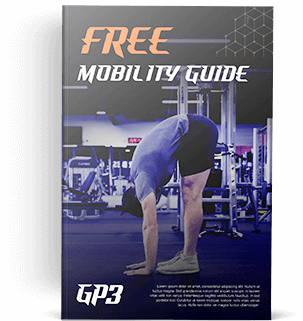Key Points:
- Top-level professional footballers play too many matches, full stop.
- Only a couple weeks into this new season, many elite European teams have already seen key players ruled out for months due to preventable soft tissue injuries.
- The culture of overtraining runs deep within the soccer world, and needs to change, or the sport’s future is at risk.
Estimated reading time: 5-10 minutes
Listen to this episode on Spotify!
No Rest for the Weary
Last season, Manchester City did something no English team has done in nearly 25 years–they won the “treble.” This is what it’s called when a team accomplishes the elusive feat of winning a domestic league championship, major domestic cup competition, and the Champions’ League (Europe’s elite knockout tournament), all in the same season.
They won the Champions’ League final on June 10th, despite having to play a majority of the match without their creative midfield maestro and arguably best player, Kevin De Bruyne. He suffered a hamstring injury before halftime and was subsequently subbed off.
After the victory, the players had little time to rest on their laurels, as they were expected to report for training on July 17th, a mere 37 days later. Manchester City’s preseason preparation included grueling training sessions and multiple exhibition matches in the sweltering heat and stifling summer humidity of East Asia. These exhausting foreign tours are common for the European football elite, as they allow them to raise money in wealthy overseas markets. But, they take a toll.
In the very first game of the 2023/24 English Premier League season, the aforementioned Kevin De Bruyne injured his same hamstring more seriously. It will require surgery, so he’ll be out for at least four months. This second injury took place on August 12th, exactly nine weeks after the original one. For context, hamstring strains that don’t require surgery can take anywhere from three to eight weeks to heal. He was very likely not fully ready for a return to such a demanding level of play.
Players of De Bruyne’s caliber are absolutely elite endurance athletes with some of the strongest legs on the planet, which means soft tissue injuries like muscle strains don’t tend to happen unless one is overly-fatigued and insufficiently recovered. Was this the case with De Bruyne? Well, in the previous ten-month long season, he played in 49 matches, for an average of 83% of the available minutes. However, these figures don’t include the World Cup, its qualifiers, and other international matches in which he played.
So, was he under-recovered? Abso-freakin’-lutely.
But it’s not just him, and it’s not just Manchester City. Elite European teams Real Madrid, Arsenal, Liverpool, Chelsea, Manchester United, and plenty of others have all had players suffer serious injuries in the first three weeks of the 23/24 season. Most of these have been non-contact, soft tissue injuries. Multiple players have suffered torn ACLs, which means they’ll now be sidelined until next season. All of this should be preventable.
Why is this happening?
First, a culture of overtraining is deeply embedded in the soccer world. More running, more training, more hard work–these are all seen as virtuous and desirable, rather than recklessly endangering players’ health and careers. As a solid piece of evidence, look no further than the beloved, (well, except Season 3) feel-good comedy, Ted Lasso.
This show has done a commendable job of recreating the look and feel of an English soccer season, even if the on-field action leaves a bit to be desired. The show also committed to commenting on certain issues facing the game today. They covered racist and homophobic abuse suffered by players (both in-stadium and online), greedy, out-of-touch club owners, and even the controversial proposal to create the closed-shop “European Super League.”
The show’s writers didn’t limit themselves to soccer, however, as one of the complaints leveled at this season was that it grew a bit preachy, taking a clear stance on many contemporary social issues. I don’t necessarily have a problem with shows doing this, though I’ll admit that Ted Lasso season three did seem a bit heavy-handed at times. But, I bring this up for a key reason. Despite the show’s eagerness to highlight as many hot-button topics as possible, it completely missed the boat on one incredibly important soccer issue.
And, you guessed it. That issue is overtraining.
When star player Zava, the show’s equivalent of European football’s own larger-than-life character, Zlatan Ibrahimovic, retires, the fictional Richmond F.C. are in crisis. They need to replace his offensive output, and fast. So, assistant coach Roy Kent (also based on a real-life footballer, Roy Keane) devises a plan. With characteristic, drill sergeant-like enthusiasm, Kent forces additional training sessions upon the club’s previous (and now again) best player, Jamie Tartt.
In the middle of the season, with Tartt expected to play a full match nearly every five days, the assistant coach thinks it’s a good idea to regularly wake up his star player at 4 a.m. for extra running. And it works! Tartt is named Player of the Month late in the campaign, turning into an assist-machine that helps his team maintain their excellent form. Never once does anyone suggest that perhaps this is the literal opposite of what such a high-level athlete would need in these circumstances.
And I know, I know, it’s just a show. This type of thing wouldn’t happen in real life, right? Well, in the middle of last week, Manchester United scheduled an honest-to-god, full scrimmage against another Premier League team before their weekend match. And we wonder why players get injured.
To some, it is indeed still a mystery. Recall the earlier list of major clubs who have lost players to debilitating injuries this season. Some English fans and commentators had an interesting suggestion as to the culprit. They reasoned, because many of these injuries happened to players who had done preseason tours in the U.S., could it be the “low-quality” soccer fields stateside that caused this? Please join me in an exaggerated eye roll, because the main cause is obvious.
During the last three years, the number of matches players from these top clubs have had to play is nothing short of extraordinary. Due to the Covid lockdown and the 2022 World Cup taking place mid-season rather than during the summer break, players have been forced into an absolutely grueling schedule. They’ve been asked to play roughly every three days for nearly three years straight.
Now the bill is finally coming due…
I’ll admit, I had been surprised that injury rates didn’t spike earlier. Perhaps that speaks well to the incredible athletic abilities of these players and their clubs’ medical teams. Or perhaps, there’s simply a longer lead time before an injury avalanche. We may never know, but I’m worried for these players. Why? Well, it’s because even innovative, progressive figures within the game don’t seem to “get it.” Arsenal’s brilliant young manager, Mikel Arteta, had this to say when asked about giving the team’s 21-year-old superstar, Bukayo Saka, a rest due to the sheer number of minutes he’s played in the past three seasons.
“Look at the top players in the world. They play 70 matches, [playing] every three days and [still] make the difference and win the game. You want to be at the top, you have to be able to do that. If we put something different in the minds of our young players, I think we are making a huge mistake. There is not a fitness coach in the world who is going to tell me that they cannot do it because I’ve seen it.”
Yikes.
Allow at least one fitness coach to beg to differ. It must be said that just because you can do something doesn’t mean you should. Saka, for example, has shown that he can play 60+ matches in a season. He’s now done it multiple times. However, he’s young enough that his body retains the ability to recover extremely quickly. Our athletic abilities don’t have to deteriorate as much as we think due to age, but we undeniably require longer and longer recovery times. By putting Saka in a position where he’s asked to play this much, this often, this young, we can easily argue that perhaps his coach risks shortening his career.
And by the end of last season, Saka did look noticeably fatigued. He wasn’t his usual, electric self, and this should be no surprise. The energy system responsible for fueling the quick, explosive movements needed to beat a defender or blast a shot from 25 yards out is literally the first thing to go when players are under-recovered.
And it’s not just Saka.
Every December, the English Premier League has a tradition where most teams play extra games between the Christmas and New Years’ holidays. It’s cool to have so much soccer on TV except…the games are often kind of dull. You can see how little gas players have left “in the tank,” and this makes many matches a slog to watch.
I’m concerned the whole sport may be on a path towards that standard becoming the norm across entire seasons. To prevent this, the beautiful game could actually stand to take a lesson or two from U.S. sports leagues. Now there’s something you won’t hear me say too often! And that’s what we’ll discuss next week, in Part 2.
Stay tuned!
Before you go, I’d love to hear from you. I realize this week’s topic was fairly niche, but were you aware of the culture of overtraining within the soccer world? If so, what are your thoughts on the matter? Reply to this email and let me know!

